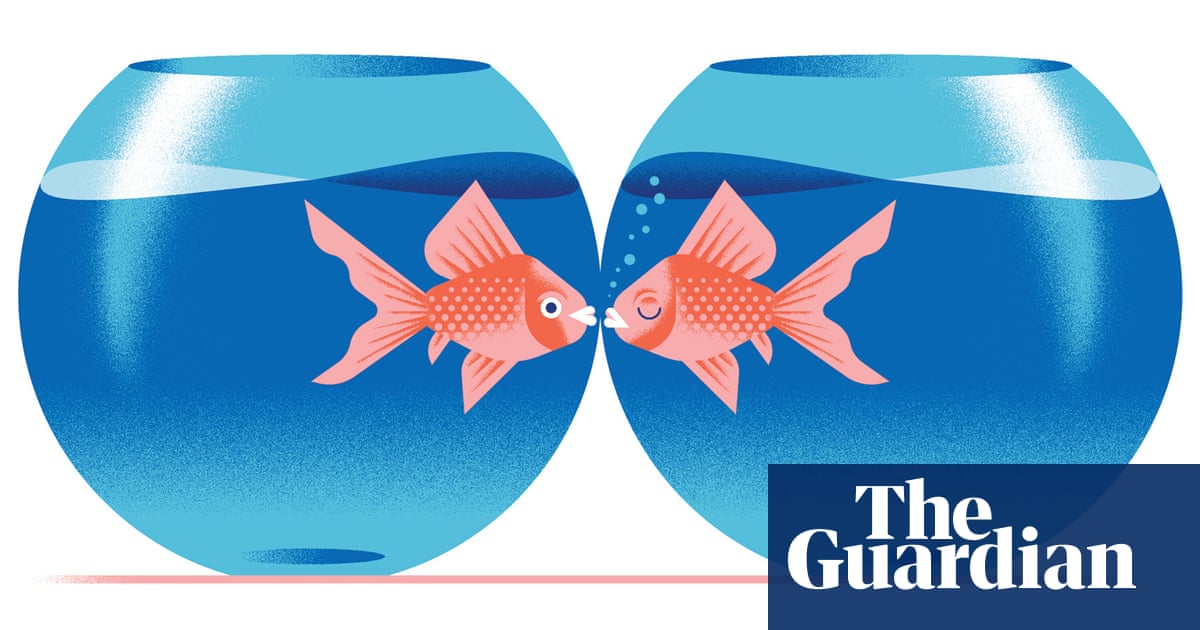
Apparently, in the dating world, there’s now an epidemic of men specifying partners and relationships with “no drama”. “I understand that people want joy, laughter and happiness in their relationships,” wrote Laura Hilgers, in a New York Times essay on the phenomenon. But the men who use such phrases, she argued, “want something that doesn’t exist: a problem-free partnership with someone who has no life experience. Are they looking for a woman who never gets angry or afraid or sad, who never worries about her family or struggles in her job?”
It’s hard to say, because “drama” is so vague. That makes it a worthy successor to the now rather 70s-sounding “issues”: a label capacious enough to include people with severe personality disorders – whom you might be forgiven for wishing to avoid – but also everyone who has displayed any human emotion other than upbeat good cheer. So, by demanding “no drama”, you get to characterise your fear of difficult emotions as a simple matter of self-care. Of course you don’t want to date somebody with, you know, issues! (To be clear: if drama means emotional or physical abuse, you should definitely avoid it.) On the other hand, good luck finding a fulfilling relationship if you will only consider people with no issues.
If I have sympathy for these drama-avoidant men, though, I can sum it up in two words: internet dating. Romance, like much else these days, comes with the promise of infinite possibility: if this particular match doesn’t work out, there are countless fantastic alternatives on standby. The promise might not be real; maybe none of those astoundingly attractive women would date you. But it’s the belief that counts – and in this environment, filtering out the prospect of being exposed to someone else’s emotional struggles makes a certain, rather soulless, kind of sense. Why choose a challenging experience if a fun one seems like an option? Sure, the challenging experience may ultimately prove more meaningful, but it’s still a big ask. It’s a mild version of that phenomenon where people have a brush with death, through illness or accident, then say it was the most meaningful experience of their lives. Fair enough – but even so, few of us would choose that path if we thought we could skip it instead.
The problem here is the collision of a timeless truth – that what we think we want isn’t always what’s best for us – with a modern one: the way the “convenience revolution” makes it so easy to get what we think we want. Convenience plays funny tricks: “I prefer to brew my coffee,” writes the academic Tim Wu, “but Starbucks Instant is so convenient I hardly ever do what I ‘prefer’.” A decade or two ago, it didn’t matter so much if you couldn’t handle negative emotions in others; if you wanted a relationship at all, you would have to learn to cope. These days, when it takes willpower just to go and meet a friend instead of staying at home watching Netflix, how much more willpower does it take to voluntarily submit to the risk of difficult feelings? You still should, since it’s the only way to fulfilment. But like many other things worth doing, it’s getting easier and easier not to do it.
Listen to this
Three Jungian therapists discuss the challenge of choosing a life partner in an episode of the podcast This Jungian Life.
Source: TheGuardian
